Our cousin, Bill Dobbs, from Salt Lake City sent this one to me. I often wondered why CEW decided to become a minister. This introduction that he wrote for Rev. Teasdale's biography tells a part of the story. CEW wrote this in 1887 at the age of 47. I have highlighted a few sentences at the end of the piece that gives us some insight into his thinking.
INTRODUCTION written by Rev. C.E.W. Dobbs
to Reminiscences & Incidents of a Long Life By Thomas Cox Teasdale
The world is greatly indebted to biography. The records of lives lived before us are sources of knowledge and warning, encouragement and hope to ourselves and to those who come after us. Very much of the Bible is biography, and no inconsiderable portion is autobiography. God would have us learn wisdom from the examples of others; from their deeds and words; their successes and their failures. Most of ancient history, if not indeed, of all history, is but the recital of the acts of individuals, who have prominently figured in the events which have shaped the destinies of the race. While it is true that principles, rather than men, are the prime factors in the outworking of human progress, still the world naturally looks to the individuals through whom those principles have been embodied in deeds. While causes, long antedating the birth of those who figure on the historic page, may have produced the circumstances which made their lives possible, yet the fascination of that page gathers round the actor, rather than the precedent causes. So it is that biography has a charm for the average mind, which will eagerly and readily suffer itself to be moulded and led by principles and doctrines exemplified by a life, when those same principles and doctrines would prove uninteresting and barren if presented in abstract form. Herein is found the wonderful power of those life-pictures drawn by our Lord in his parables. The truth embodied in the story of the man, the woman, the steward, the householder, the shepherd, the king— ah! how it reaches and thrills and sways! Our modern teachers of religious and moral duties recognize that for the great mass of men, this is the most efficient method of inculcating truth. Weaving the truth into the threads of the story, either of a real, or an ideal life—this is the open door to the soul. And the story, with the truth incidentally taught, is effective in proportion to the verisimilitude characterizing the production.
Dr. Pendleton, in reviewing Dr. Hatcher's "Life of Dr. Jeter," says that "works of biography are not generally popular," and he instances the fact that second editions of many works of this kind have not been called for. But there are biographies and biographies. One need not wonder that biographies such as once composed the bulk of the volumes burdening (yes, literally) the shelves of Sunday-school libraries, should have been distasteful to the dear souls forced to peruse them. Let us hope that that style of biography, with its fitting companion—the canting "diary" of too self-conscious piety—has gone forever into its deserved oblivion! But no one, who is capable of enjoying a really instructive and entertaining book, can read, for example, that "Life of Dr. Jeter" without pleasure and profit. It may be that the prejudice against books of biography has arisen from the experience of the past.
This work of Dr. Teasdale, though autobiographical, will be found to be anything but prosy and dull. Its pages, so full of incidents and reminiscences of the long life of one of God's honored servants, will be read with unflagging interest by multitudes who have known and revered him. It is not the work of sudden and late impulse; it is the growth of years of experience and labor. The busy life of the author, so varied in its spheres of usefulness, has necessarily brought him into relations and associations more or less intimate with widely-scattered thousands of God's children. Nearly three score years of ministerial service, —as pastor, as secretary, as professor, as evangelist, as author,—have made Dr. Teasdale a household name among Baptists North and South, East and West, Those who have known him in any of his many fields of labor will welcome this volume, and will be glad to put before their families this vivid narrative of a life so consecrated to duty and so useful to the cause of the Master. Urgent calls from many of those friends have had much to do in persuading Dr. Teasdale to write the book.
Dr. Teasdale's character as a man, no less than his eminent service as a minister of the Gospel, entitles him to regard and esteem. The proverb tells us that "the hoary head is a crown of glory if it be found in the way of righteousness." Since early manhood, he has been numbered among the soldiers of Christ, and has borne no small part in the struggles and victories which have been fought and achieved by the church in the present century. Born almost in its beginning, he has lived to share the marvelous activities and gratifying successes characterizing its last quarter. The writer heard him make an impromptu talk in one of the morning half hours of prayer, at the State Convention of Mississippi Baptists, recently held in Oxford, in which he said : "For more than half a century have I tried to serve God in preaching the precious Gospel of Christ. I have loved this blessed Savior and the work he has given me to do, and if I had to live my life over again I would cheerfully devote it all to the same delightful service." Such language is the utterance of profound conviction and earnest piety; it is the tribute which sincere love and self-sacrificing faithfulness would lay at the feet of saving Grace. Soon will his work be done on earth, and the servant shall go to his heavenly rewards. Soon will the warrior lay down his armor, and enter into his eternal victory. It is well that he should leave behind him this volume telling how the Lord has led him and blessed him as he has labored in the vineyard and fought the good fight.
Dr. Teasdale's long ministry has been many-sided in its spheres of usefulness. In this introduction it is unnecessary to dwell upon these in detail. The reader would more satisfactorily consult the pages which lie before him. Suffice it to say here that in all the positions he has occupied, he has given the best energies of his mind and heart to the duties of the hour. As pastor, the records which tell of laborious and successful years at New Haven, Pittsburg, Springfield, Washington and Columbus, testify to his faithfulness and efficiency. As Secretary, he can point with satisfaction to the energy with which he prosecuted the work of the Sunday-school Board of the Southern Baptist Convention during the trying and critical years when it was in his charge. As author, he has just reason to rejoice that his "Revival Discourses" and his work on "Baptism and Communion" have been greatly blessed to the edification, comfort and guidance of many souls. But it is as Evangelist perhaps, that he has clone his best work and been most signally owned of the Master. In this special field he has indeed made full proof of his ministry. The name "evangelist" is used in deference to common usage, though that usage has not wholly the sanction of the New Testament. The word is found three times in the New Testament. Philip, one of the seven, was known as "the evangelist," and Timothy was urged by Paul to "do the work of an evangelist," while among the "gifts" of the ascended Head of the Church, for the building up of the body of Christ, the evangelist is named. (Acts xxi. 8; 2 Tim. iv. 5; Eph. iv. 11). The Greek verbal form occurs frequently, usually rendered, "preach the Gospel"—literally "evangelize." An evangelist, then, in the Scripture sense, is one who preaches the Gospel, perhaps with an implication of itinerancy. The name indicates a work, rather than a distinct ministerial or dcr. The Apostles "evangelized," that is, they were "heralds of the good tidings." (Acts vm. 25 ; xiv. 7 : 1 Cor. i: 17). From the connection in which the word is found we may infer that the calling of the evangelist was the proclamation of the Gospel to those who had not known it, rather than the instruction and pastoral care of those already gathered into churches. In the early Christian centuries the term was applied to the writers of the four Gospels; and we yet so apply it. If we think of the modern evangelist as one whose special mission it is to preach the Gospel to the unconverted, there is a quasi-scriptural argument for the use. Perhaps, however, the modern foreign missionary, bearing the glad tidings for the first time to the heathen, is the nearest analogy to the evangelist of the New Testament. Using the term in its prevalent significance Dr. Teasdale must be considered a very successful evangelist.
He was, in the years of his evangelistic activity, admirably fitted for that work. When a youth of eighteen years, I first heard him, he was in the prime of manhood, one of the most impressive pulpit orators of our country. Though of small stature his appearance in the pulpit indicated a man of much larger build. His movements and gestures in the delivery of his sermons were exceedingly graceful. His elocution was fine, and his voice exceptionally clear and resonant. In prayer he was especially gifted. When he drew near the throne of grace his manner was reverent, and the earnest and pathetic tone of his petitions moved the soul to sincere attention and humble interest. His sermons displayed no inconsiderable analytical and logical thought. He preached the Word. In doctrine his sermons were always eminently Scriptural. While not ignoring the graces of rhetoric eloquence, they abound in the clear statements of fundamental Gospel truth as of paramount importance in winning souls. It may be well to refer here to those admirable sermons on "Self righteousness," the "Agency of the Holy Spirit," and the "Sin against the Holy Spirit," found in his "Revival Discourses." These proclaim in no uncertain terms the plan of salvation, while his discourse on "God's Controversy with the Sinner," sets forth with such vividness the depravity and guilt of the ungodly as to make the conscience tremble under a sense of the need of Divine mercy.
As an evangelist, Dr. Teasdale never played the clown; he was no buffoon; he never descended to "court a smile when he should woo a soul." Boorish jokes and .vulgar slang found no place in his message from God. Impressed with the awful danger of men, and the solemnity of his vocation, he discarded alike the jesting and the tricks of the mountebank, which, alas, have come to play so sad a part in the preaching and methods of many popular so-called "evangelists." Unlike them, Dr. Teasdale ever preached the Gospel as the only power of God unto salvation.
"He preached as tho' he ne'er might preach again,
And as a dying man to dying men."
Souls converted under such an evangelist come into the churches animated by the true idea of salvation by grace and prepared to "run the race set before them." Intelligently led to Christ they continue to "serve God with reverence and Godly fear."
It need scarcely be added that in his work as an evangelist Dr. Teasdale aimed to strengthen the pastors in. the esteem and affection of the churches. He did not pose before the people as some "higher life" saint who had attained unto some peculiar spiritual aristocracy in the kingdom of Heaven. He did not begin his meetings by abusing the ministry as lacking in faith and faithfulness, or devoid of earnestness in preaching the Gospel. Many "evangelists" seem to think it necessary to hold up the average pastor as wanting in knowledge of the Word and lacking in zeal for the salvation of their flocks. Not so with this Father in Israel. He fully recognized the work of the ordinary ministry in their faithful seed-sowing and oversight of the churches, and came to their aid as a fellow-worker with them in the Lord's harvest field.
In the Baptist ministry of to-day stand many honored men of God who, through Dr. Teasdale's preaching, were either led to the Savior, or induced to enter the ministry. Among them may be mentioned Drs. Lorimer and Hawthorne. Never can I cease to thank God for the providence that led me to hear a series of sermons by Dr. Teasdale in Portsmouth, Va. some thirty years ago. That series of sermons under God saved me from what might have been a life-long groping amid the shadows of Universalism, and turned my feet into the path which ultimately led me to the "truth as it is in Jesus." And now, as this venerable servant of Jesus is Hearing his crown, I desire to lay before the world this tribute to his work and worth.
C. E. W. DOBBS. Columbus, Miss., Sept. 1, '87.
Subscribe to:
Post Comments (Atom)






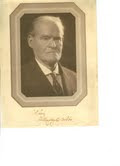


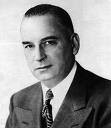



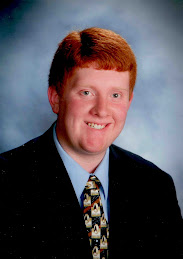
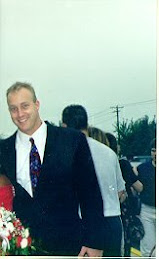
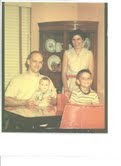
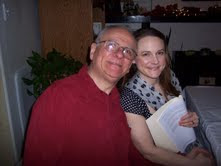
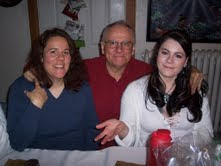

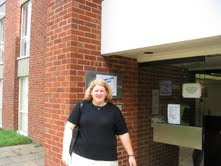
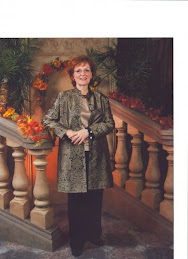




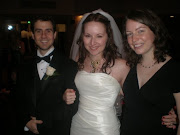

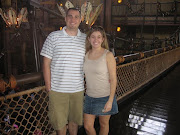

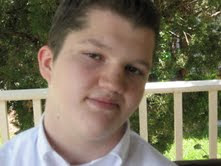
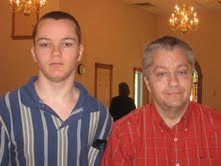
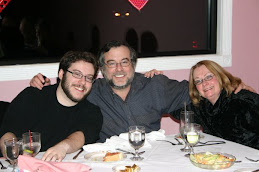



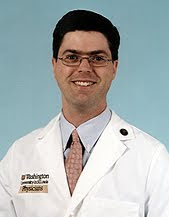
No comments:
Post a Comment